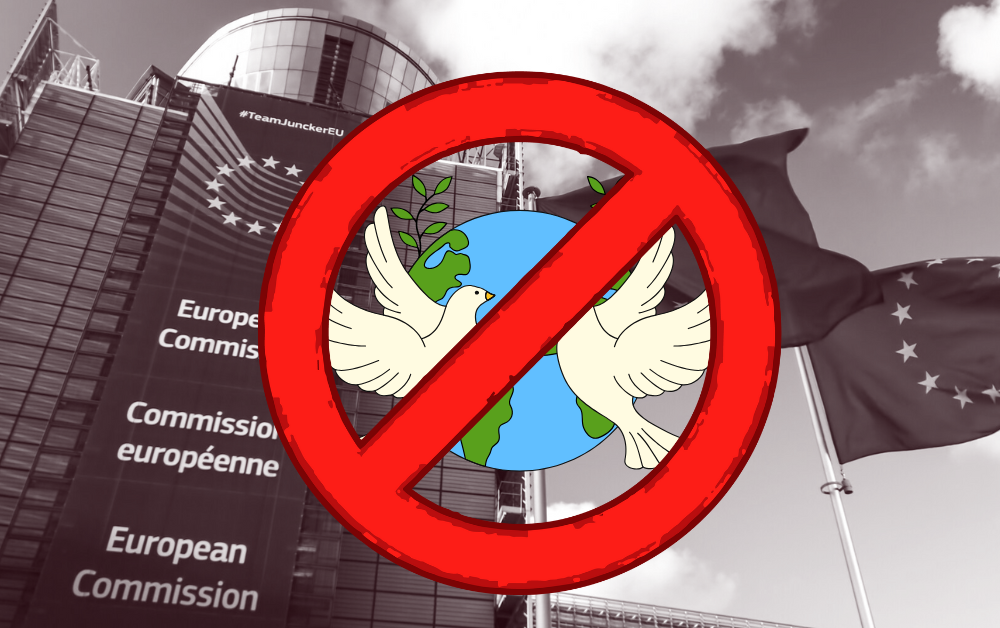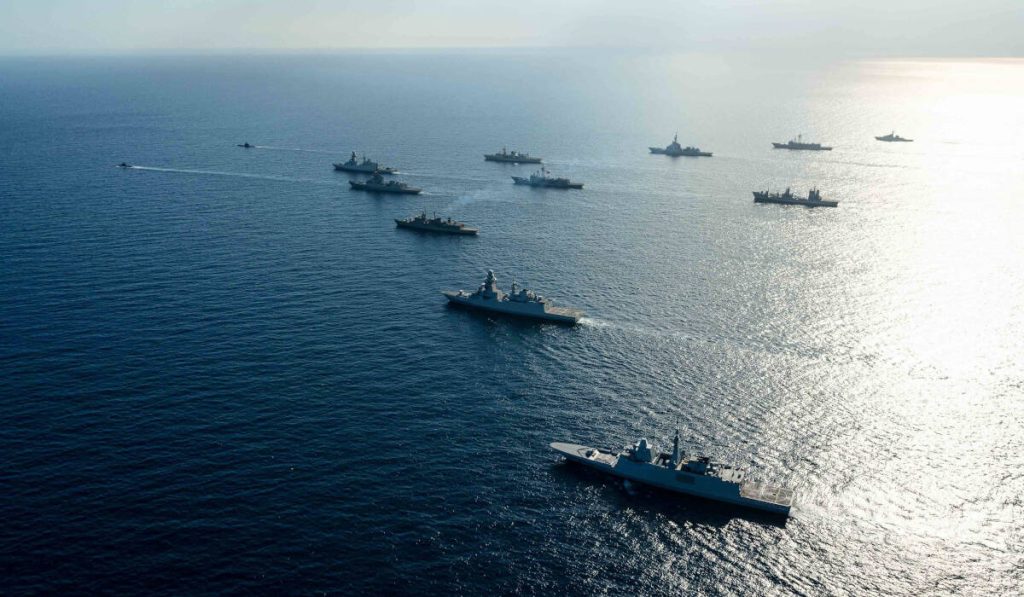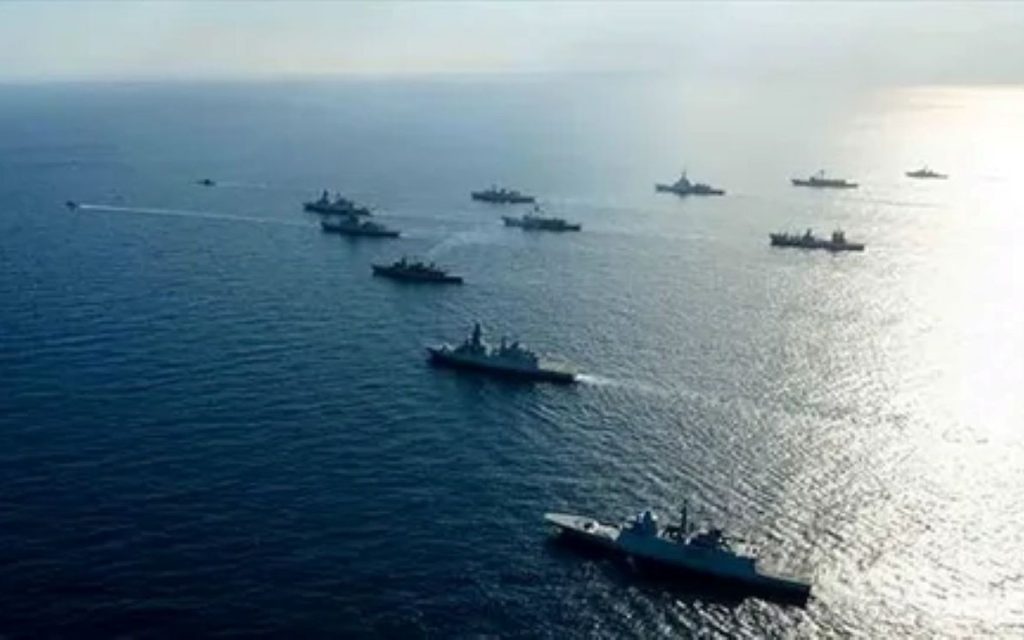The American peace plan for Ukraine was not presented through quiet talks, backroom meetings and long negotiations in Swiss hotels. It arrived in a flurry of leaks, ultimatums and stock phrases at press conferences. A kind of megaphone diplomacy that speaks more to talk shows than to negotiators.
At the centre of it is Donald Trump. For weeks the White House has been hammering on a very simple idea: to bring the war in Ukraine to a rapid end. Not out of some sudden pacifism, but to clear the table. In Washington they know perfectly well that the real strategic confrontation is with China in the Pacific, that the Taiwan question will sooner or later explode, and that the Middle Eastern front, with Israel, Iran and all the proxy wars, will demand enormous political energy. Keeping a high-intensity conflict in Europe open for years is no longer compatible with this picture.
Hence the ultimatum leaked to the media: Zelensky was supposed to accept the plan by 27 November, otherwise American support would no longer be the same. Then the spokespeople softened the tone, but the message remained clear. President Trump wants to close the Ukraine file, even at the cost of imposing on Kyiv a compromise that until yesterday no one, in words, was willing to consider.
Europe reacted in the opposite way. Instead of reading the plan as a glimmer of hope, it seized the opportunity to restate its long-standing line. Brussels, Berlin and Paris sent Zelensky an unmistakable signal: do not give in, do not accept agreements that recognise Russia’s new territories, resist as long as possible, until “final victory”. Once again European leaders lined up next to the Ukrainian president to promise “as long as it takes”, “all the support needed”, “all the weapons necessary”.
It is hard not to recall what happened in 2022, when then British prime minister Boris Johnson flew to Kyiv in the midst of the first exploratory contacts for negotiations. According to what has been reported, in those hours he conveyed a very simple message: no compromises with Moscow, the West is with you, go on with the war. Today the script seems to be repeating itself at the European level, with the added blessing of the Commission.
This time, however, there is one more revealing detail. As soon as the first news flashes came out on President Trump’s ultimatum and on the concrete possibility that the conflict might be frozen, defence companies’ shares began to lose ground. Europe’s arms giants, from Leonardo to Rheinmetall, saw their stock prices fall, as if the mere idea of a ceasefire were bad news for the economy. It is the vivid picture of a system that now lives off war, the measure of how deeply rearmament has become part of the continent’s growth model.
Why the European Union has reacted so badly to the American plan
Behind the European “no” there are at least three intertwining reasons.
The first is ideological. For years the European liberal elite has built its political identity on opposition to Russia. Moscow is not just a geopolitical rival, it is the enemy that justifies everything: sanctions, rearmament, domestic measures, the silencing of dissenting voices. If the war ends with a compromise that freezes Russian gains, the entire moral narrative on which these choices have been legitimised collapses. Peace then becomes almost taboo. Better not to talk about it, better to invoke vague formulas such as “a just peace” which, in practice, mean postponing everything to an indefinite future.
The second reason is sheer political self-preservation. For years European citizens have been told that Ukraine could “win”, that Russia would be pushed back to its 1991 borders, that sanctions would bring it to its knees. Today, after hundreds of thousands of deaths, after cities razed to the ground and a devastated economy, admitting that it all ends with a de facto partition of the territory and limits imposed on the Ukrainian army itself is tantamount to acknowledging that a huge illusion has been built.
It is no coincidence that some British newspapers have begun to speak of “false hopes” that have been fuelled over these years. The Sunday Times has essentially written that Ukrainians have fought and died for objectives that Europe was never capable of guaranteeing. The Daily Telegraph has portrayed the continent’s leaders as actors pretending to perform on the stage of great powers, while Europe long ago lost any real role. These are words Brussels does not want to hear. It is simpler to double down on promises of aid, to pretend that everything is still possible, to put off the day of reckoning.
The third reason has to do with money, which in war is never a detail. In two years the European defence industry has exploded: multibillion contracts, new plants, restarted production lines, national rearmament plans. Entire economic districts now revolve around munitions, missiles, air defence systems, armoured vehicles. There is no need to imagine any dark conspiracy to understand that there is a structural conflict of interest. Those in government have woven their energy, industrial and military strategy together with the continuation of the war. Stopping it simply means asking the obvious question: what do we do with all this apparatus now, while welfare and public services are gasping for air?
It is no surprise that Hungarian foreign minister Peter Szijjarto has openly stated that the European Union is trying to sabotage American peace efforts in order to force Ukrainians to keep fighting. Hungary is defending its national interests, of course, but that sentence captures a feeling widely shared in many non-aligned countries: Europe does not want peace, it wants a “manageable” war, fought “to the last Ukrainian”.
Meanwhile, in the background, the usual double standard resurfaces. When it is Moscow, or China, that calls for negotiations, the proposal is dismissed as propaganda. When it is Donald Trump pushing for a compromise, we are told that the plan is “premature”, that “we cannot give in now”, that “Russian gains cannot be legitimised”. There is always a good reason not to stop.
The next front
All this is happening while the world moves. The crisis between Israel and Iran is no longer an abstract hypothesis but a concrete risk, and the Taiwan dossier looms on Trump’s desk. For Washington the war in Ukraine has become a luxury it cannot afford indefinitely. Hence the haste, the harshness, even the brutality with which a peace plan has been turned into an ultimatum to Zelensky.
For Europe the issue is different. Ending the conflict would mean looking in the mirror and admitting that it has failed to protect Ukraine, to truly weaken Russia, and to defend its citizens’ standard of living. It is far more comfortable to carry on with what Lavrov has called “megaphone diplomacy”: press conferences, solemn declarations, new aid packages and more promises of “unity until the end”.
The question, however, stubbornly remains. Are the European leaders who today “urge” Zelensky to reject any agreement really ready to support him for years to come, while their public opinion grows tired, budgets are drained and industries live only off military contracts? Or are they just buying time, waiting for someone else, perhaps Trump himself, to take on the political responsibility of switching off the megaphone and signing a peace that no one in Brussels has the courage to ask for openly?










